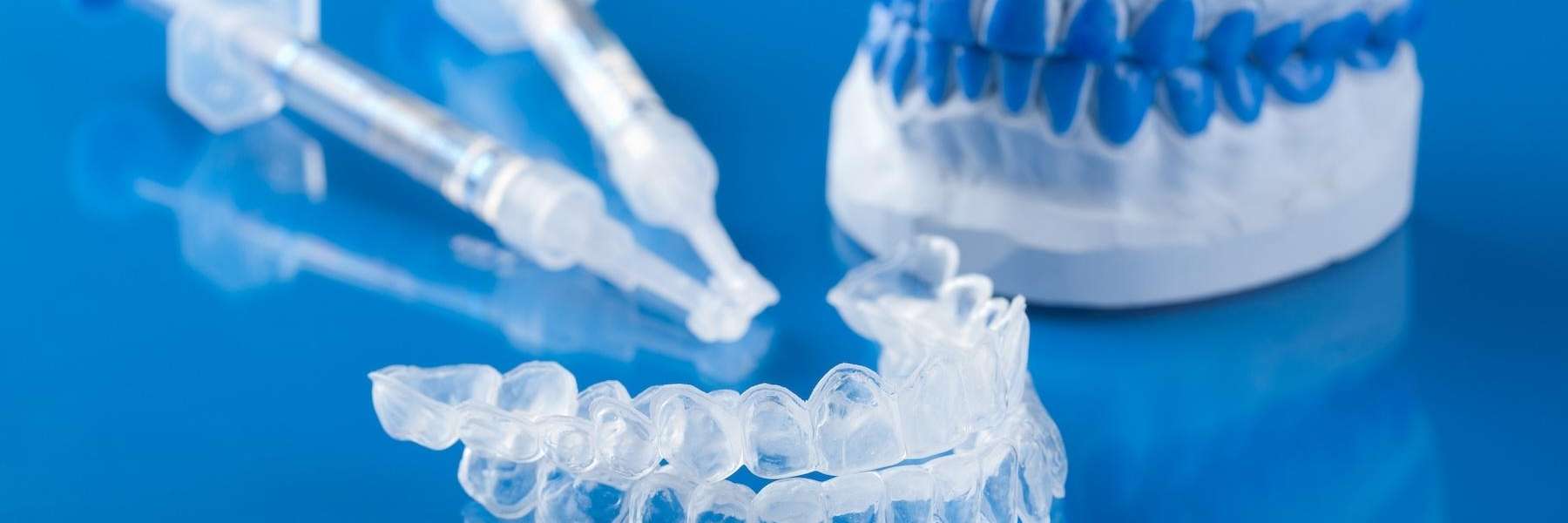
There are a lot of myths floating around in the ether about teeth whitening. Let’s put seven of these myths to rest right here, right now.
Teeth whitening is a popular cosmetic procedure that brings many people the confidence to smile freely and laugh without reserve. That means something important to people’s self-image. So here are the seven myths about teeth whitening in Scottsdale that we’re going to debunk in this blog:
- Teeth-whitening damages your enamel
- Over-the-counter products are as effective as professional-grade products
- Whitening results are permanent
- Whitening toothpaste is all you need
- People with sensitive teeth can’t whiten their teeth
- You only need to whiten your teeth once
- All teeth can be whitened
Let’s get to debunking.
Myth #1: Teeth-Whitening Damages Your Enamel
Tooth whitening is one of the most frequently used cosmetic dentistry procedures. So it's unsurprising that myths about enamel damage abound.
Where did this myth come from? It’s possible that people misusing over-the-counter products, or the overly aggressive use of professional treatments, have caused damage to tooth enamel. For this reason, many people assume that tooth whitening as a whole always causes enamel damage.
Let’s be clear: When done correctly, professional tooth whitening does not cause enamel damage. A recent research update summarized the literature about teeth whitening with the following conclusion: “When used following manufacturer’s instructions, hydrogen peroxide and carbamide peroxide-based tooth whitening is safe and effective.” The takeaway is this: get your teeth whitened with professional oversight.
Myth #2: Over-The-Counter Products Are Just as Effective
When you walk through the toothpaste aisle at the grocery store, it might be tempting to pick up the relatively cheap over-the-counter (OTC) whitening strips and toothpaste. They may seem like a bargain, but the science tells a different story.
A recent clinical trial compared OTC products to professional at-home whitening (the kind supervised by your dentist with custom trays and higher-concentration gels). The study showed that the OTC products were not as effective as the at-home professional treatment. The OTC products “caused a colour difference below the clinically detectable threshold.” In other words, they didn’t whiten teeth enough to be noticeable.
In-office whitening treatments are the most potent products, delivering dramatic whitening results in less than an hour. Generally, this change involves teeth becoming 3–8 shades whiter. To recap, professional whitening treatments offer several advantages, including:
- Stronger concentrations of the whitening agent
- Faster whitening
- Custom trays that whiten more evenly
- Longer lasting than OTC treatments
The last point is something we’ll talk more about in the next section.
Myth #3: Whitening Results Are Permanent
It would be nice if you could whiten your teeth once and then not think about it ever again! Alas, that is not how reality works. However, professional whitening treatments last significantly longer than OTC whitening products. Healthline offers these timeframes:
- OTC whitening strips can last up to six months
- In-office professional tooth whitening can last from 1-3 years
How long whitening results lasts also depends heavily on lifestyle factors such as oral hygiene, tobacco usage, and how often you consume staining foods and beverages. Your longest-lasting whitening results will come from professional whitening and guidance, and taking great care of your teeth after you’ve treated them.
Myth #4: Whitening Toothpaste Is All You Need
Whitening toothpastes can be helpful in combination with other whitening treatments. However, they generally target the surface of your teeth and often contain abrasives to eliminate shallow stains. Although whitening toothpaste can temporarily offer some teeth whitening, it can also thin tooth enamel with long-term use.
Talk to your dentist about whitening products and your aesthetic and oral health needs. They are your best resource for figuring out the best whitening treatment system for your specific goals, without damaging your teeth.
Myth #5: People With Sensitive Teeth Can’t Whiten Their Teeth
A more accurate thing to say is that people with sensitive teeth have extra motivation to use professional teeth whitening services. In-office whitening involves several safeguards for people with sensitive teeth or gums, including:
- Adjusting treatment to your needs, including customizing the strength of whitening agents in response to any pre-existing tooth sensitivity
- Recommending products or techniques to help with sensitivity
- A controlled environment means control over the process. Overuse or improper application is common with OTC products and can lead to tooth damage.
Basically, if you have sensitive teeth, all the more reason to have a professional overseeing your tooth whitening. If you simply use OTC products, you have no control over the strength of the product, and may end up worsening sensitivity.
Myth #6: You Only Need to Whiten Your Teeth Once
As we discussed earlier, whitening is not permanent. But you have some options to help you maintain white teeth. Your dentist can offer at-home treatment kits for upkeep, along with periodic in-office treatments. And you can work on maintaining top-notch oral hygiene. Brush and floss every day, use mouthwash, eliminate tobacco use, and cut down on staining food and beverages such as coffee and wine.
If you do enjoy a meal involving red wine, beets, and red tomato sauce, for example, be sure to brush after! The important point here is that OTC products don't last as long, can be overused, and cause enamel damage. A whitening program customized for your needs, delivered by a professional, is the safest route to keeping your teeth white over time.
Myth #7: All Teeth Can Be Whitened
There are two kinds of tooth discoloration. Intrinsic stains (internal) are caused by aging, medication, trauma, or infections. These are deep, internal stains that are difficult to eliminate. Generally, whiteners won’t work on these kinds of stains.
Extrinsic stains (external) are the more common form of discoloration. These types of stains result from tobacco use, coffee, wine, dark tea, and some foods. Whiteners work best for these kinds of stains.
Whitening products also don’t work on dental restorations, as the materials in crowns, veneers, and fillings don’t react to whitening agents.
Interested in Getting Your Teeth Whitened? Give Us a Call!
Now that we’ve busted some whitening myths, are you considering getting your teeth professionally whitened? No matter your particular aesthetic goals, our team of professionals is ready to help you get started with teeth whitening in Scottsdale.
